January 24, 2024
Tzu Chi scholars visit Bahay Tsinoy
By Joy Rojas
“In every aspect of Philippine life, in every phase of Philippine history, in its culture and traditions, language and song, in every Filipino, there throbs a Chinese presence.”
So begins the message of a sign that greets visitors of Bahay Tsinoy, a museum of Chinese in Philippine Life. Tzu Chi volunteers accompanied 68 graduating Tzu Chi scholars on a tour of Bahay Tsinoy for their monthly Humanity class on January 21.
Located within the Kaisa Angelo King Heritage Center building on the corners of Anda and Cabido Streets in Intramuros, Manila, Bahay Tsinoy offers a rich display of life-size dioramas and authentic artifacts that prove the undeniable Chinese influence in all aspects of Philippine life.
Through guided tours, scholars were made aware of the significant contributions of Chinese in setups that captured the Earliest settlers, the Parian (quarters where Chinese lived and worked), Colonial culture, Emergence of the Chinese community, In defense of freedom, Life in the 1800s, and National leaders of Chinese descent. Many were surprised to learn that a lot of iconic Filipino personalities come from Chinese ancestry: national hero Jose Rizal, martyred priests Mariano Gomez, Jose Burgos, and Jacinto Zamora (Gomburza), and Filipino saint Lorenzo Ruiz, to name a few.
“This tour made me appreciate the Chinese for contributing to a big part of our culture, and that they have made us the society that we are today,” says Shylyn Joy Pioquinto, a Tzu Chi scholar taking her Bachelor of Science in Business Administration (major in Human Resource Management) at the Pamantasan ng Lungsod ng Maynila. “It also made me realize that as people, we should be united, helping each other, just like what the earlier generations have done.”
Tzu Chi scholar Paolo Nicole Santos didn’t have to look far to recognize that the Chinese and Filipinos are “one, united, and harmonious. Look at the Tzu Chi Foundation: Chinese volunteers helping Filipinos,” says the Philippine Normal University student taking his Bachelor in Library and Information Science. “So, what are we? We are all Filipinos, building each other up, helping each other, guiding each other.”
One of the aims of the tour is to correct the notion that the Chinese were already wealthy when they first arrived in the Philippines.
“The first generation of migrant Chinese who settled here were illiterate,” says Baldwin Kho, Bahay Tsinoy museum director and volunteer. “But they worked and studied hard. And when they prospered, they learned to give back. That’s very beautiful—and very much like Tzu Chi in values.”
Recalling her own father, who came to the Philippines from China as a young boy and started out as a “magbobote” (bottle collector) before he saved and earned enough to open his own hardware store, Tzu Chi Educational Committee Head Rosa So says, “We started from nothing, we persevered, we worked to reach our goals.”
“I hope our scholars realize why we brought them here: So, they know that hard work and thriftiness are part of our success,” she says. “Through this visit, they will realize that with patience and perseverance, you can achieve your dreams.”
Meanwhile, the younger batches of Tzu Chi scholars gathered at the Jing Si Auditorium of Buddhist Tzu Chi Campus in Sta. Mesa, Manila, for their Humanity class. Volunteer Betty Dizon led an interactive discussion on vegetarianism, and Tzu Chi Great Love Preschool Philippines School Directress Jane Sy spoke about the Kindness Challenge, an ongoing global initiative that encourages youth to commit to acts of kindness and compassion in everyday life.
Scholars showed their support for the campaign by writing on a white board the acts of kindness they can do and sustain. Answers included “Commit to charity,” “Practice volunteerism,” “Spread positive words,” and “Always say ‘thank you.’”
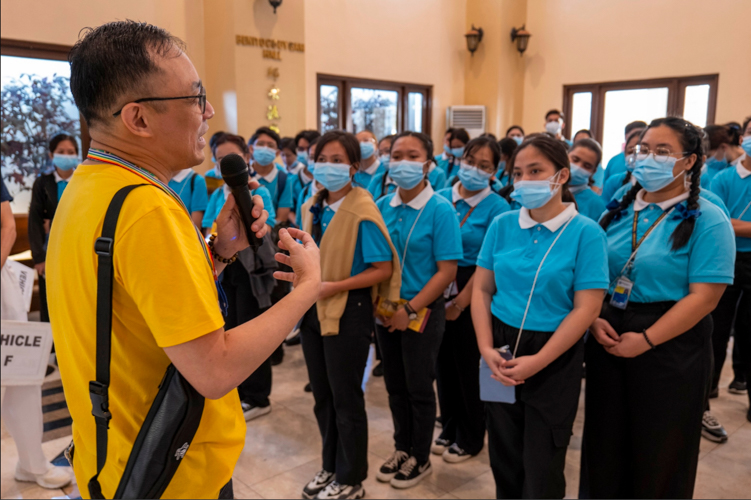 Bahay Tsinoy Museum Director and volunteer Baldwin Kho addresses Tzu Chi scholars before the start of the tour. 【Photo by Matt Serrano】
Bahay Tsinoy Museum Director and volunteer Baldwin Kho addresses Tzu Chi scholars before the start of the tour. 【Photo by Matt Serrano】
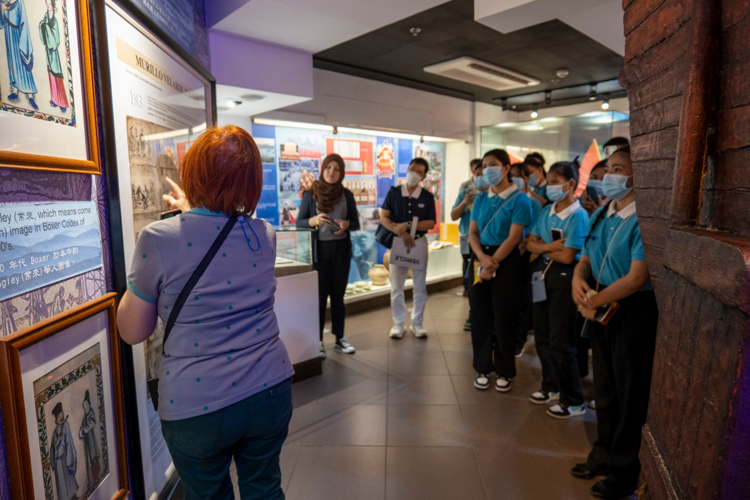 Tour guides discuss the relevant contributions of Chinese in various aspects of Philippine life. 【Photo by Matt Serrano】
Tour guides discuss the relevant contributions of Chinese in various aspects of Philippine life. 【Photo by Matt Serrano】
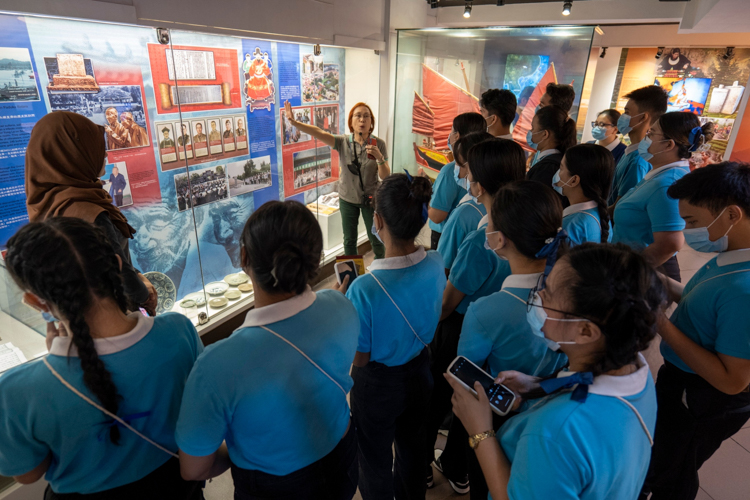 Tour guides discuss the relevant contributions of Chinese in various aspects of Philippine life. 【Photo by Matt Serrano】
Tour guides discuss the relevant contributions of Chinese in various aspects of Philippine life. 【Photo by Matt Serrano】
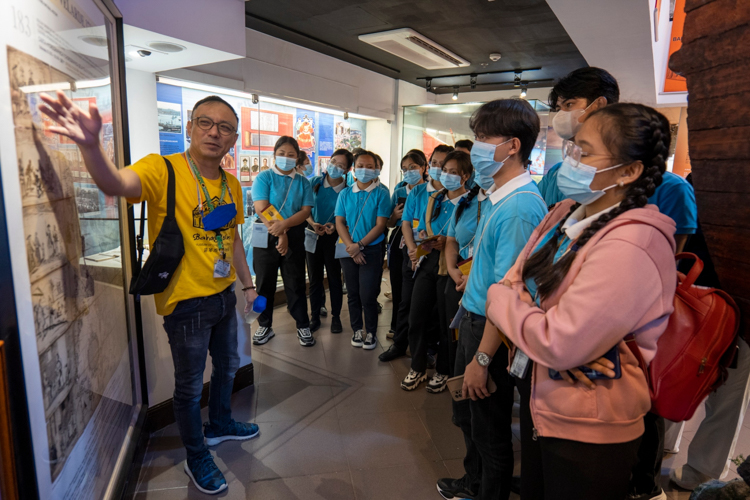 Tour guides discuss the relevant contributions of Chinese in various aspects of Philippine life. 【Photo by Matt Serrano】
Tour guides discuss the relevant contributions of Chinese in various aspects of Philippine life. 【Photo by Matt Serrano】
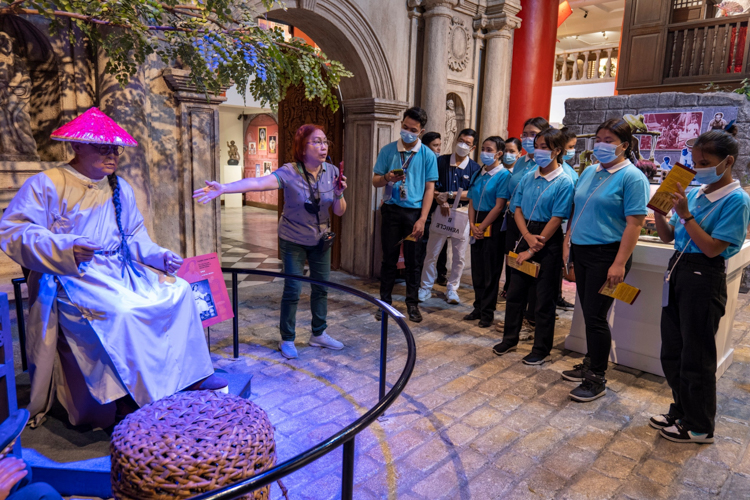 Tour guides discuss the relevant contributions of Chinese in various aspects of Philippine life. 【Photo by Matt Serrano】
Tour guides discuss the relevant contributions of Chinese in various aspects of Philippine life. 【Photo by Matt Serrano】
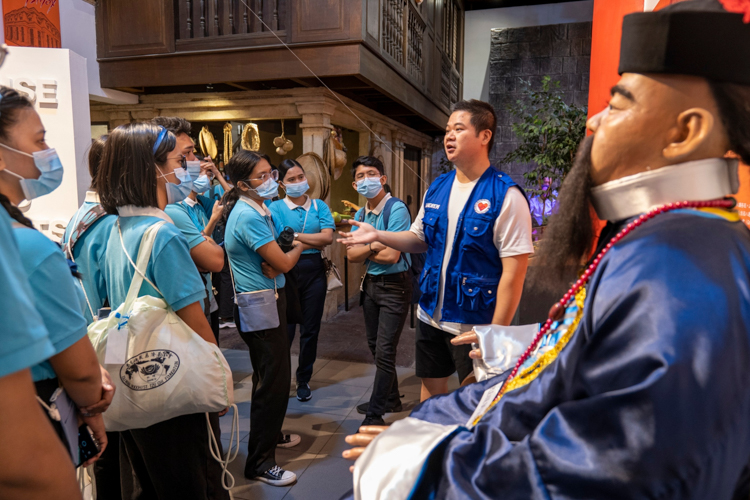 Tour guides discuss the relevant contributions of Chinese in various aspects of Philippine life. 【Photo by Matt Serrano】
Tour guides discuss the relevant contributions of Chinese in various aspects of Philippine life. 【Photo by Matt Serrano】
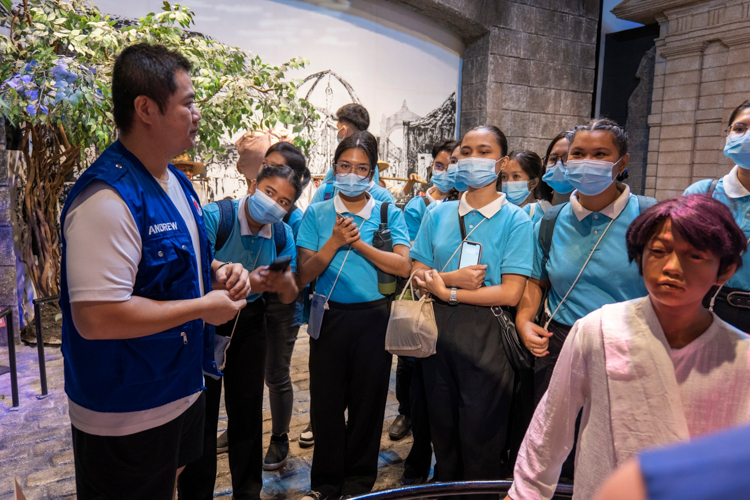 Tour guides discuss the relevant contributions of Chinese in various aspects of Philippine life. 【Photo by Matt Serrano】
Tour guides discuss the relevant contributions of Chinese in various aspects of Philippine life. 【Photo by Matt Serrano】
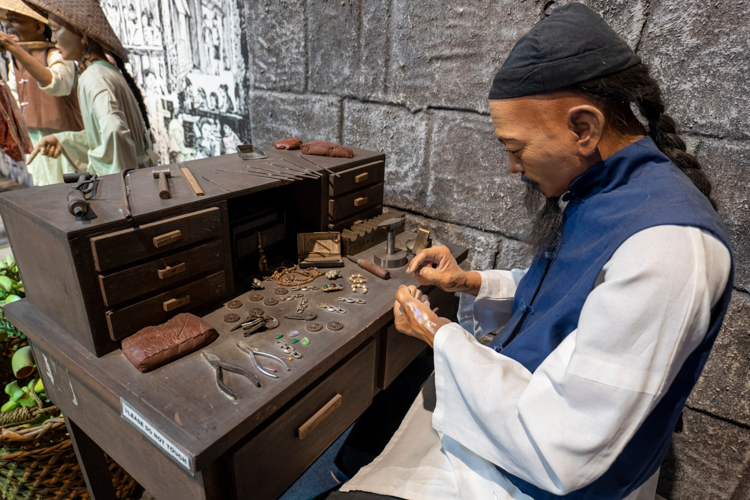 Life-size and life-like, dioramas capture the Chinese presence and influence throughout Philippine history. 【Photo by Matt Serrano】
Life-size and life-like, dioramas capture the Chinese presence and influence throughout Philippine history. 【Photo by Matt Serrano】
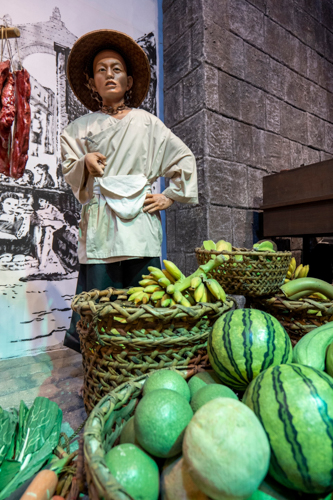 Life-size and life-like, dioramas capture the Chinese presence and influence throughout Philippine history. 【Photo by Matt Serrano】
Life-size and life-like, dioramas capture the Chinese presence and influence throughout Philippine history. 【Photo by Matt Serrano】
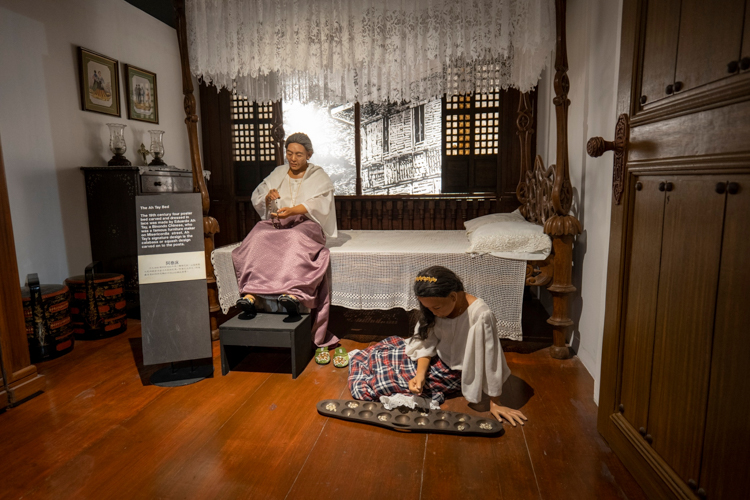 Life-size and life-like, dioramas capture the Chinese presence and influence throughout Philippine history. 【Photo by Matt Serrano】
Life-size and life-like, dioramas capture the Chinese presence and influence throughout Philippine history. 【Photo by Matt Serrano】
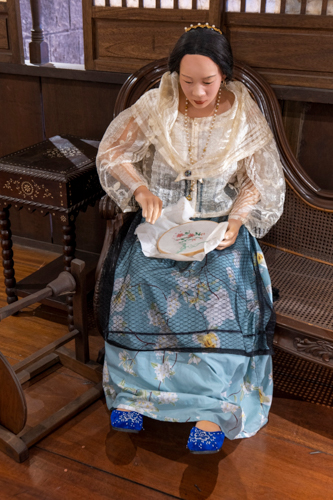 Life-size and life-like, dioramas capture the Chinese presence and influence throughout Philippine history. 【Photo by Matt Serrano】
Life-size and life-like, dioramas capture the Chinese presence and influence throughout Philippine history. 【Photo by Matt Serrano】
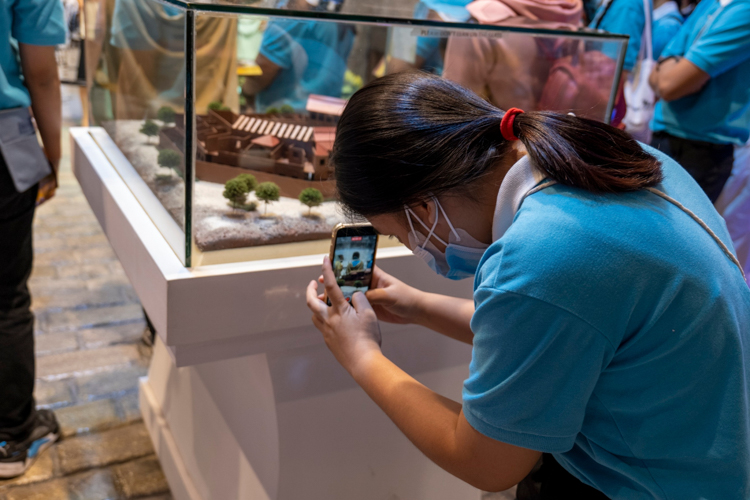 Tzu Chi scholars preserve the tour experience in pictures and memory. 【Photo by Matt Serrano】
Tzu Chi scholars preserve the tour experience in pictures and memory. 【Photo by Matt Serrano】
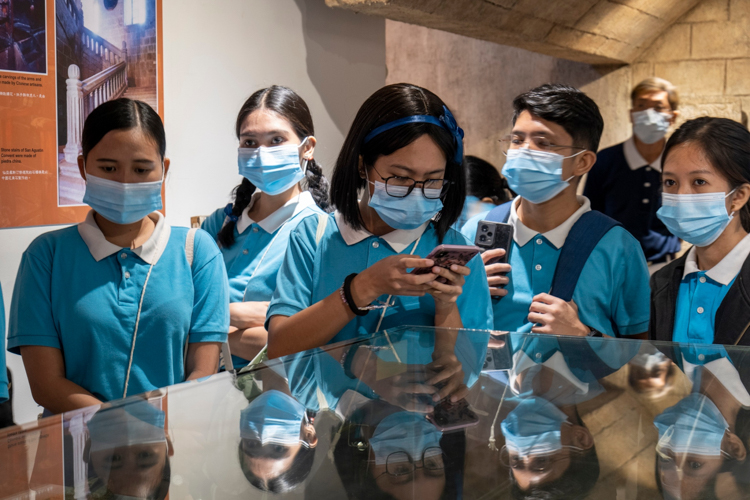 Tzu Chi scholars preserve the tour experience in pictures and memory. 【Photo by Matt Serrano】
Tzu Chi scholars preserve the tour experience in pictures and memory. 【Photo by Matt Serrano】
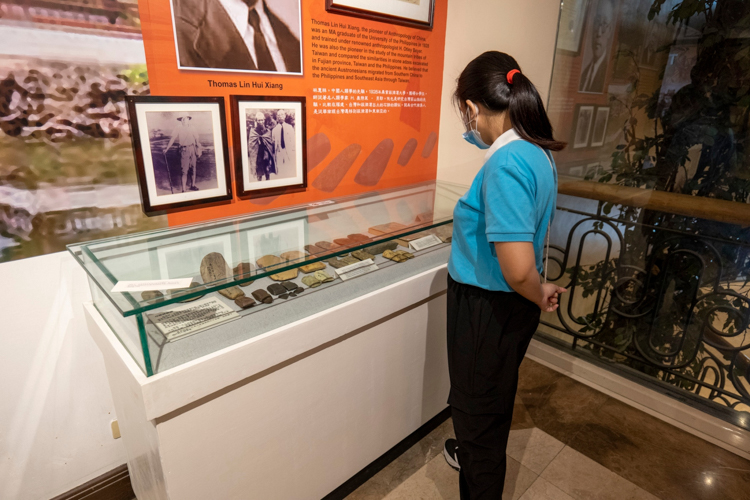 Tzu Chi scholars preserve the tour experience in pictures and memory. 【Photo by Matt Serrano】
Tzu Chi scholars preserve the tour experience in pictures and memory. 【Photo by Matt Serrano】
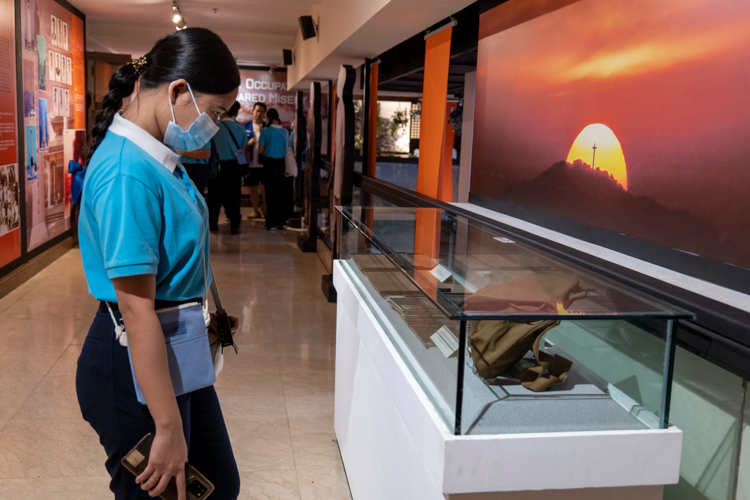 Tzu Chi scholars preserve the tour experience in pictures and memory. 【Photo by Matt Serrano】
Tzu Chi scholars preserve the tour experience in pictures and memory. 【Photo by Matt Serrano】
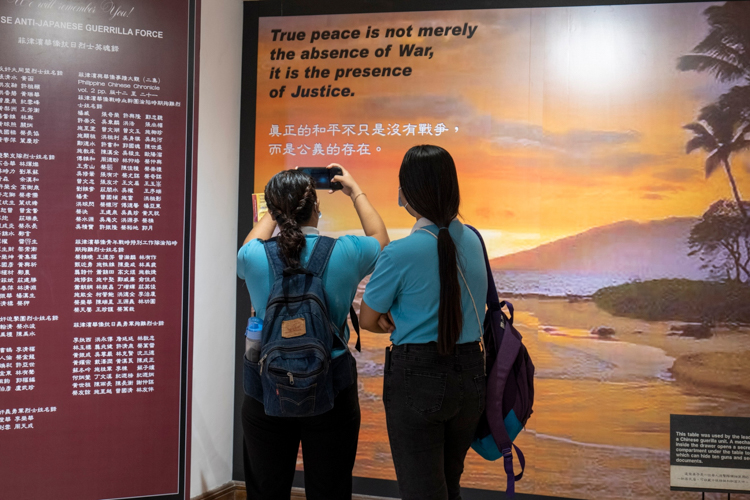 Tzu Chi scholars preserve the tour experience in pictures and memory. 【Photo by Matt Serrano】
Tzu Chi scholars preserve the tour experience in pictures and memory. 【Photo by Matt Serrano】
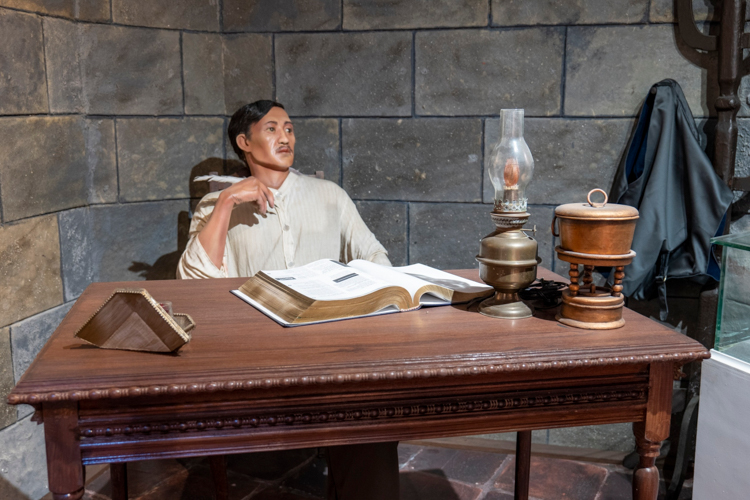 A diorama of national hero Dr. Jose Rizal is part of the museum display, as he, and many other notable Filipinos, come from Chinese ancestry. 【Photo by Matt Serrano】
A diorama of national hero Dr. Jose Rizal is part of the museum display, as he, and many other notable Filipinos, come from Chinese ancestry. 【Photo by Matt Serrano】
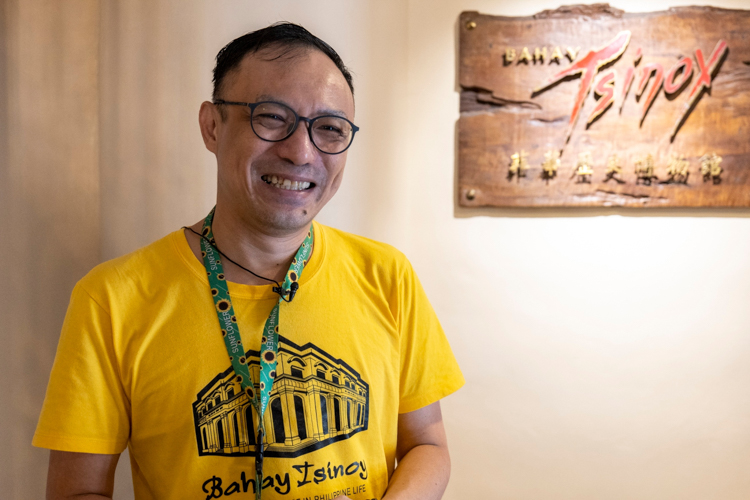 “The first generation of migrant Chinese who settled here were illiterate,” says Baldwin Kho, Bahay Tsinoy museum director and volunteer. “But they worked and studied hard. And when they prospered, they learned to give back. That’s very beautiful—and very much like Tzu Chi in values.” 【Photo by Matt Serrano】
“The first generation of migrant Chinese who settled here were illiterate,” says Baldwin Kho, Bahay Tsinoy museum director and volunteer. “But they worked and studied hard. And when they prospered, they learned to give back. That’s very beautiful—and very much like Tzu Chi in values.” 【Photo by Matt Serrano】
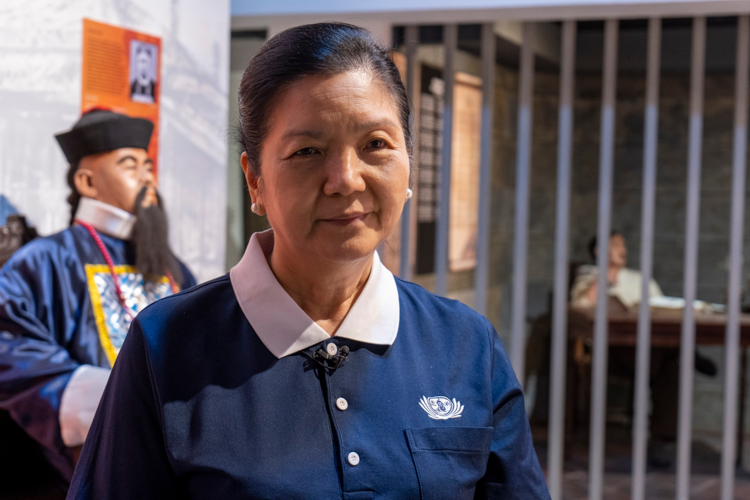 “I hope our scholars realize why we brought them here: So, they know that hard work and thriftiness are part of our success,” says Tzu Chi Educational Committee Head Rosa So. “Through this visit, they will realize that with patience and perseverance, you can achieve your dreams.” 【Photo by Matt Serrano】
“I hope our scholars realize why we brought them here: So, they know that hard work and thriftiness are part of our success,” says Tzu Chi Educational Committee Head Rosa So. “Through this visit, they will realize that with patience and perseverance, you can achieve your dreams.” 【Photo by Matt Serrano】
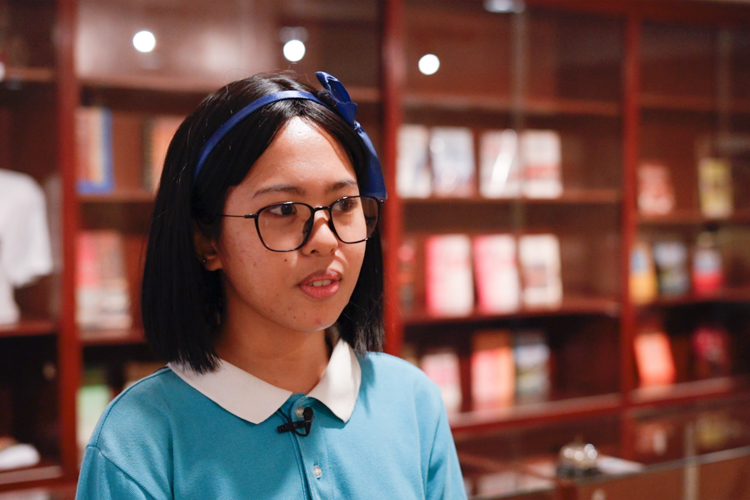 “This tour made me appreciate the Chinese for contributing to a big part of our culture, and that they have made us the society that we are today,” says Shylyn Joy Pioquinto, a Tzu Chi scholar taking her Bachelor of Science in Business Administration (major in Human Resource Management) at the Pamantasan ng Lungsod ng Maynila. 【Photo by Matt Serrano】
“This tour made me appreciate the Chinese for contributing to a big part of our culture, and that they have made us the society that we are today,” says Shylyn Joy Pioquinto, a Tzu Chi scholar taking her Bachelor of Science in Business Administration (major in Human Resource Management) at the Pamantasan ng Lungsod ng Maynila. 【Photo by Matt Serrano】
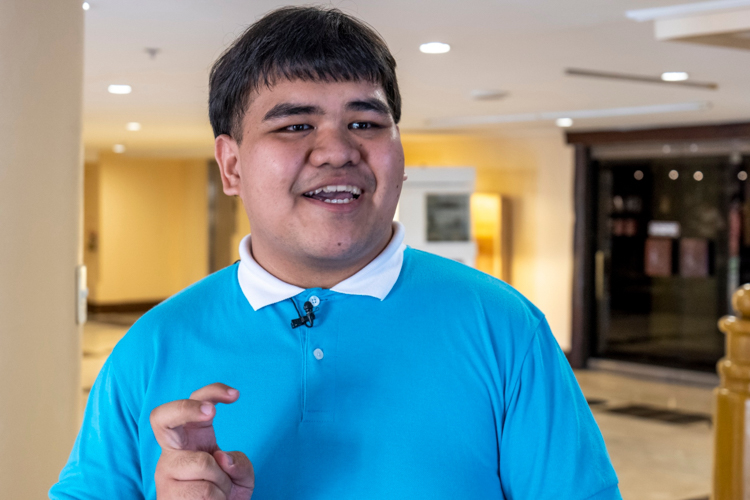 “Look at the Tzu Chi Foundation: Chinese volunteers helping Filipinos,” says Tzu Chi scholar Paolo Nicole Santos, a Philippine Normal University student taking his Bachelor in Library and Information Science. “So, what are we? We are all Filipinos, building each other up, helping each other, guiding each other.” 【Photo by Matt Serrano】
“Look at the Tzu Chi Foundation: Chinese volunteers helping Filipinos,” says Tzu Chi scholar Paolo Nicole Santos, a Philippine Normal University student taking his Bachelor in Library and Information Science. “So, what are we? We are all Filipinos, building each other up, helping each other, guiding each other.” 【Photo by Matt Serrano】
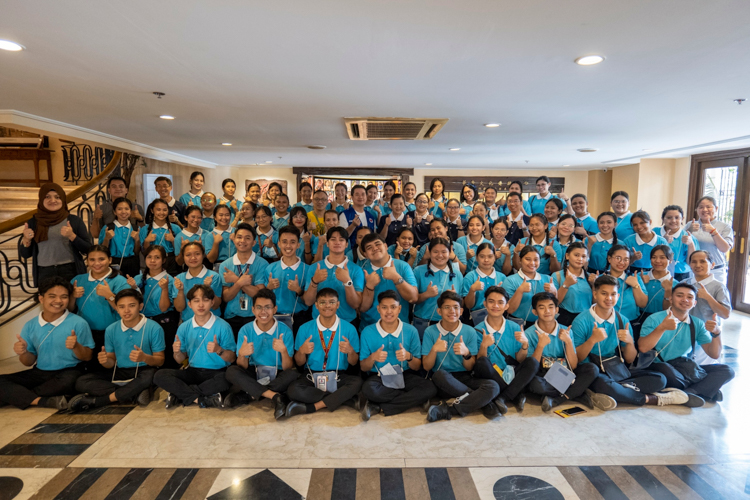 Tzu Chi volunteers and scholars pose with the staff of Bahay Tsinoy. 【Photo by Matt Serrano】
Tzu Chi volunteers and scholars pose with the staff of Bahay Tsinoy. 【Photo by Matt Serrano】
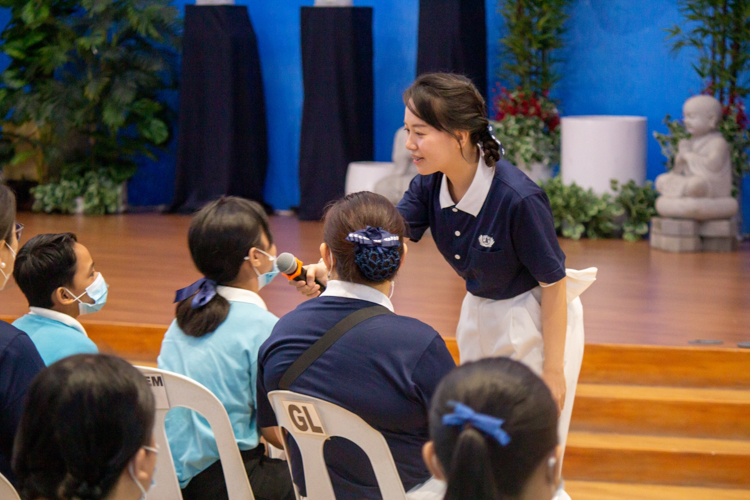 At BTCC, the younger batches of Tzu Chi scholars attended their own Humanity class. Volunteer Betty Dizon led an interactive discussion on vegetarianism. 【Photo by Marella Saldonido】
At BTCC, the younger batches of Tzu Chi scholars attended their own Humanity class. Volunteer Betty Dizon led an interactive discussion on vegetarianism. 【Photo by Marella Saldonido】
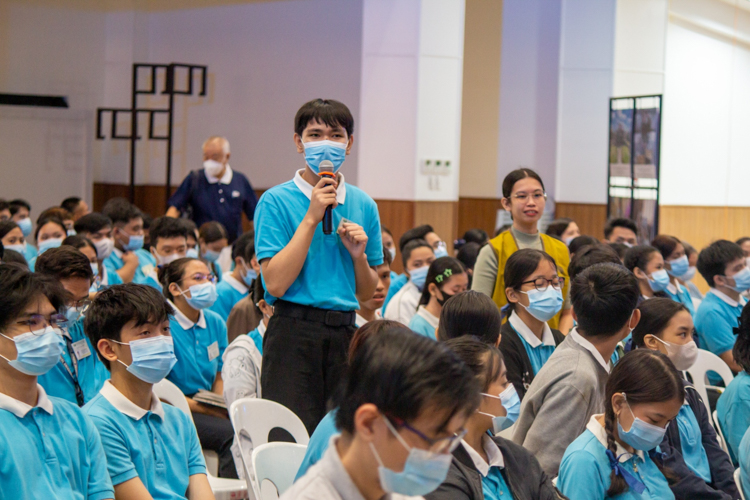 At BTCC, the younger batches of Tzu Chi scholars attended their own Humanity class. Volunteer Betty Dizon led an interactive discussion on vegetarianism. 【Photo by Marella Saldonido】
At BTCC, the younger batches of Tzu Chi scholars attended their own Humanity class. Volunteer Betty Dizon led an interactive discussion on vegetarianism. 【Photo by Marella Saldonido】
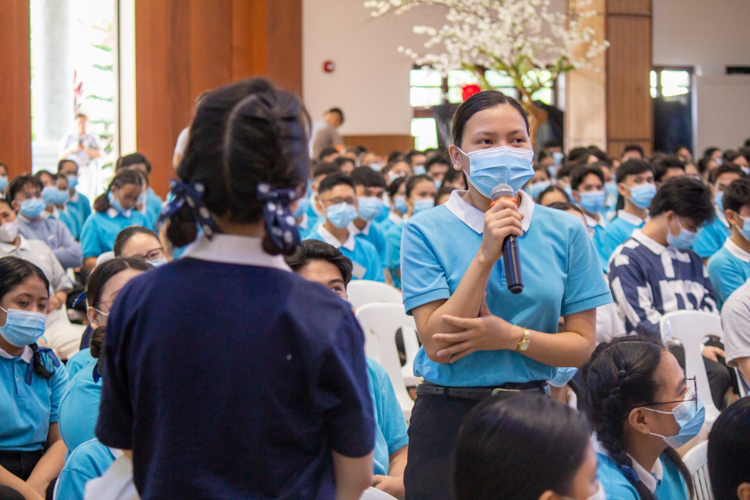 At BTCC, the younger batches of Tzu Chi scholars attended their own Humanity class. Volunteer Betty Dizon led an interactive discussion on vegetarianism. 【Photo by Marella Saldonido】
At BTCC, the younger batches of Tzu Chi scholars attended their own Humanity class. Volunteer Betty Dizon led an interactive discussion on vegetarianism. 【Photo by Marella Saldonido】
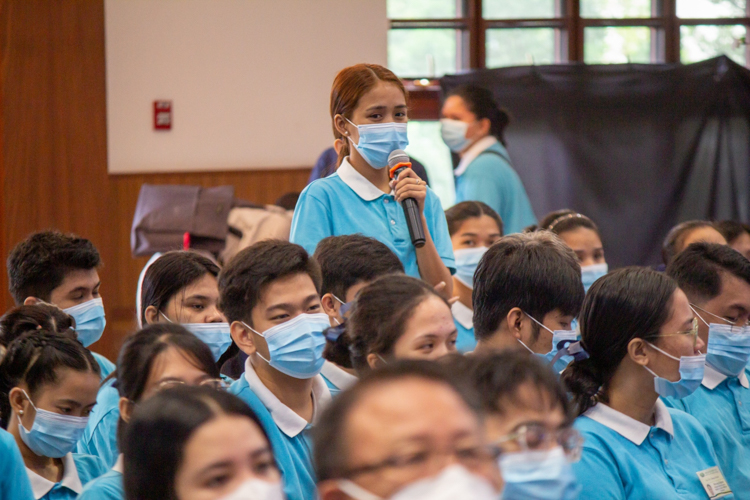 At BTCC, the younger batches of Tzu Chi scholars attended their own Humanity class. Volunteer Betty Dizon led an interactive discussion on vegetarianism. 【Photo by Marella Saldonido】
At BTCC, the younger batches of Tzu Chi scholars attended their own Humanity class. Volunteer Betty Dizon led an interactive discussion on vegetarianism. 【Photo by Marella Saldonido】
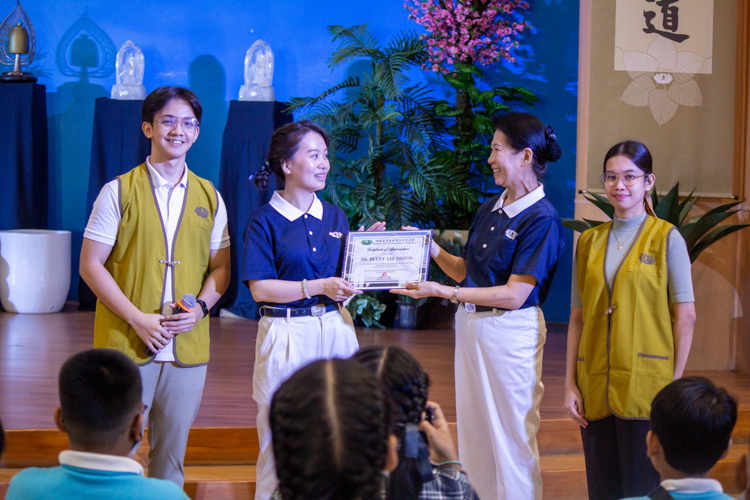 Volunteer Betty Dizon (second from left) accepts a certificate of appreciation from Tzu Chi Philippines Deputy CEO Woon Ng (second from right). 【Photo by Marella Saldonido】
Volunteer Betty Dizon (second from left) accepts a certificate of appreciation from Tzu Chi Philippines Deputy CEO Woon Ng (second from right). 【Photo by Marella Saldonido】
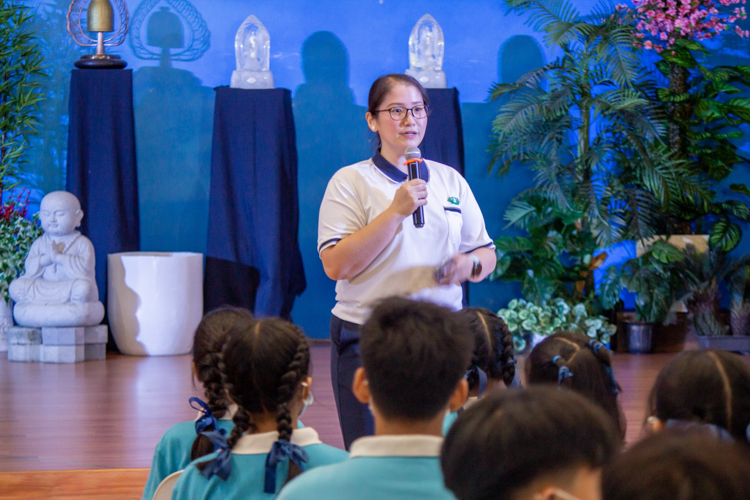 Tzu Chi Great Love Preschool Philippines School Directress Jane Sy engages Tzu Chi scholars to take part in the Kindness Challenge, an ongoing global initiative to integrate acts of kindness and compassion in everyday life. 【Photo by Marella Saldonido】
Tzu Chi Great Love Preschool Philippines School Directress Jane Sy engages Tzu Chi scholars to take part in the Kindness Challenge, an ongoing global initiative to integrate acts of kindness and compassion in everyday life. 【Photo by Marella Saldonido】
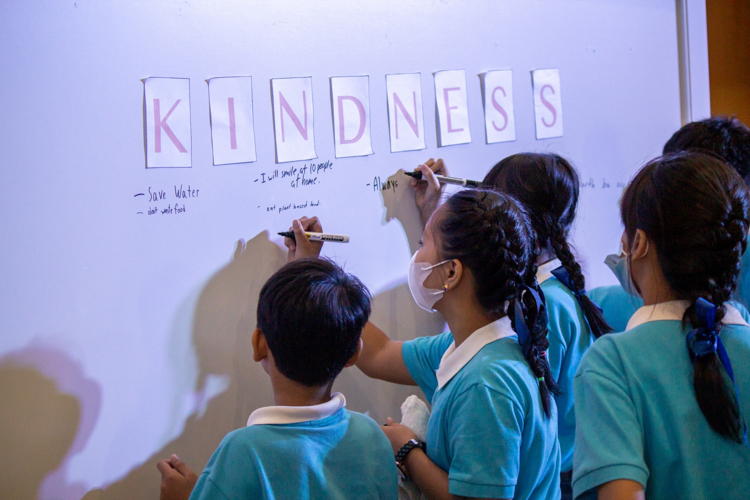 Tzu Chi scholars approach the white board to write the acts of kindness they can commit to. 【Photo by Marella Saldonido】
Tzu Chi scholars approach the white board to write the acts of kindness they can commit to. 【Photo by Marella Saldonido】
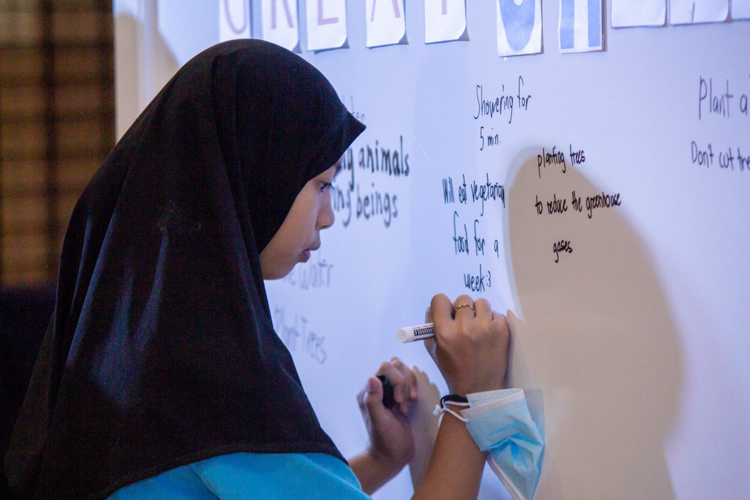 Tzu Chi scholars approach the white board to write the acts of kindness they can commit to. 【Photo by Marella Saldonido】
Tzu Chi scholars approach the white board to write the acts of kindness they can commit to. 【Photo by Marella Saldonido】
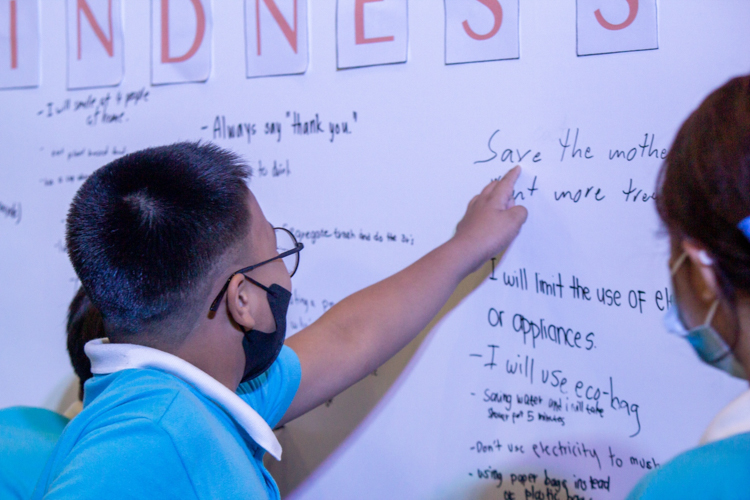 Tzu Chi scholars approach the white board to write the acts of kindness they can commit to. 【Photo by Marella Saldonido】
Tzu Chi scholars approach the white board to write the acts of kindness they can commit to. 【Photo by Marella Saldonido】
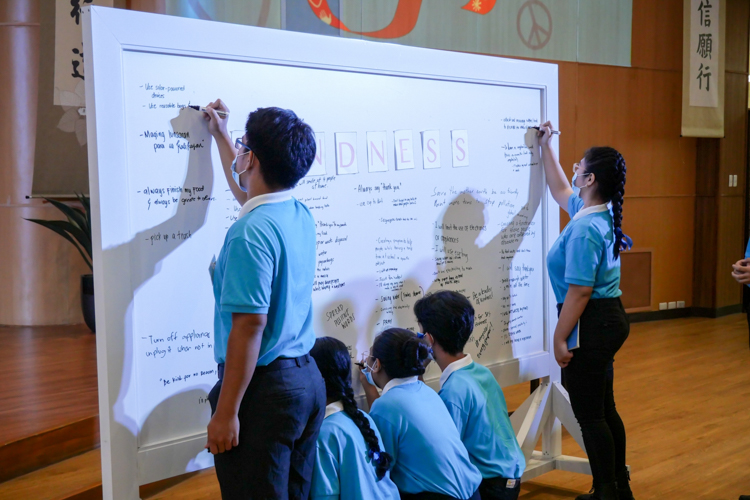 Tzu Chi scholars approach the white board to write the acts of kindness they can commit to. 【Photo by Marella Saldonido】
Tzu Chi scholars approach the white board to write the acts of kindness they can commit to. 【Photo by Marella Saldonido】
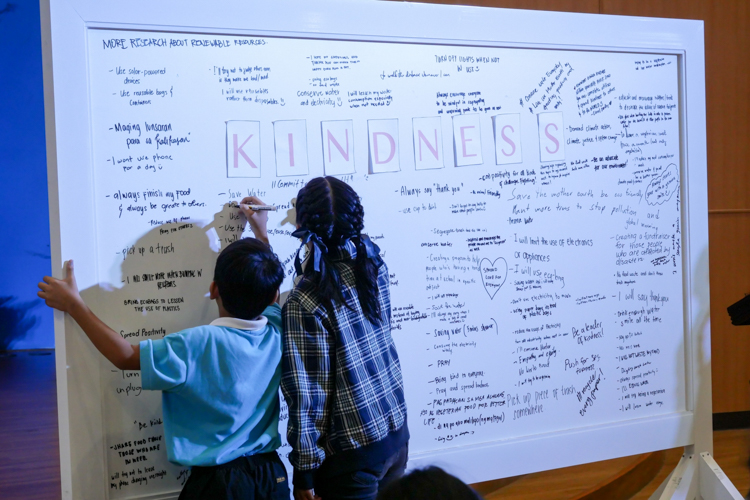 Tzu Chi scholars approach the white board to write the acts of kindness they can commit to. 【Photo by Marella Saldonido】
Tzu Chi scholars approach the white board to write the acts of kindness they can commit to. 【Photo by Marella Saldonido】
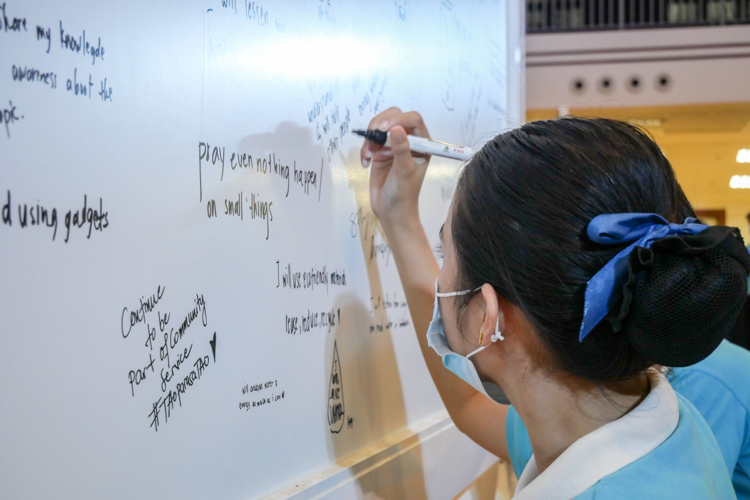 Tzu Chi scholars approach the white board to write the acts of kindness they can commit to. 【Photo by Marella Saldonido】
Tzu Chi scholars approach the white board to write the acts of kindness they can commit to. 【Photo by Marella Saldonido】
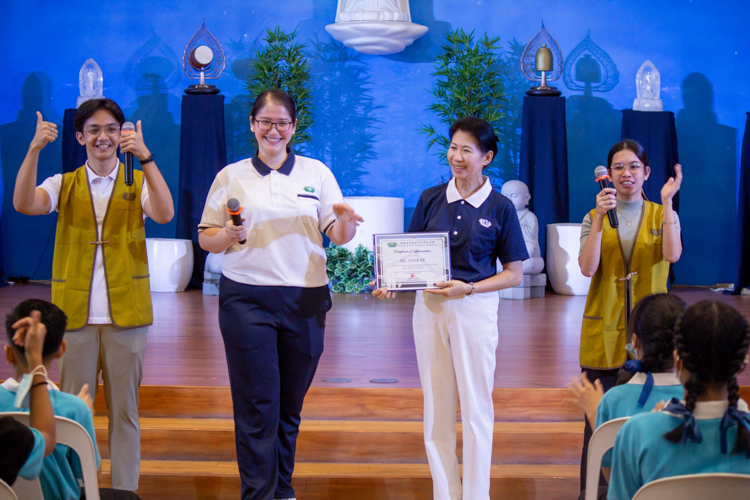 Tzu Chi Great Love Preschool Philippines School Directress Jane Sy (second from left) receives a certificate of appreciation from Tzu Chi Philippines Deputy CEO Woon Ng (second from right). 【Photo by Marella Saldonido】
Tzu Chi Great Love Preschool Philippines School Directress Jane Sy (second from left) receives a certificate of appreciation from Tzu Chi Philippines Deputy CEO Woon Ng (second from right). 【Photo by Marella Saldonido】





